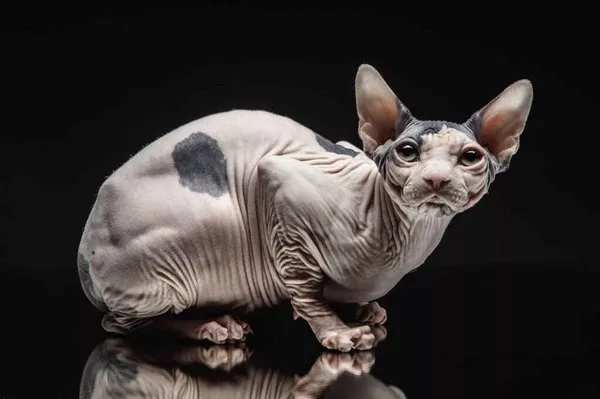Kittens are undeniably one of the most adorable and endearing creatures on the planet. Their rapid growth and playful antics make them irresistible to cat lovers. However, just as their growth is fascinating, it’s also a topic that often raises questions. When do kittens stop growing? How much will they grow? Is there a specific age at which their growth plateaus? In this comprehensive article, we will explore the stages of kitten growth, the factors influencing their growth, and the answer to the question: when do kittens stop growing?
Stages of Kitten Growth
Understanding the stages of kitten growth is essential before delving into when they stop growing. Like human infants, kittens go through several distinct growth phases during their early months of life. These stages can be broadly divided into the following:
1. Neonatal Stage (0-2 weeks)
During the neonatal stage, kittens are entirely dependent on their mother for nourishment and warmth. They are born blind, deaf, and unable to regulate their body temperature. Their primary focus is on gaining weight and developing basic survival skills.
2. Transition Stage (2-4 weeks)
At this stage, kittens begin to open their eyes and ears, and they become more aware of their surroundings. They start to experiment with walking and play, although their movements are still quite unsteady. Their baby teeth begin to emerge, and they may start nibbling on soft food.
3. Socialization Stage (4-8 weeks)
Kittens become more social and interactive during this stage. They refine their motor skills, learn to groom themselves, and engage in play with their littermates. This is also when they begin to develop their distinct personalities and preferences.
4. Growth Stage (2-6 months)
The growth stage is characterized by rapid physical development. Kittens grow in size, and their bodies become more proportionate. Their baby teeth fall out, and they acquire their permanent set of adult teeth. This is the stage during which kittens gain most of their weight.
5. Adolescence (6-12 months)
As kittens approach their first birthday, they continue to grow, but at a slower rate. They reach their full adult size, and their behaviors and personalities continue to mature.
Factors Influencing Kitten Growth
Several factors influence the growth of kittens, including genetics, nutrition, and overall health. Let’s explore these factors in more detail:
1. Genetics
Genetics plays a significant role in determining a kitten’s growth potential. Different cat breeds have varying growth patterns and sizes. Some breeds are known for their large size, while others are smaller and more petite. A kitten’s ultimate size and growth rate are often influenced by the size of their parents and the breed’s genetic traits.
2. Nutrition
Proper nutrition is essential for healthy kitten growth. Kittens require a diet rich in essential nutrients, including protein, fat, vitamins, and minerals. A high-quality kitten food specifically formulated to meet their nutritional needs is crucial during the early stages of life. The type and quantity of food provided can significantly impact a kitten’s growth rate.
3. Health
A kitten’s overall health also affects their growth. Kittens that experience illness or health issues may not grow at the expected rate. Regular veterinary check-ups, vaccinations, and deworming treatments are essential to ensure kittens remain healthy and continue to grow as expected.
4. Neutering/Spaying
The age at which a kitten is neutered or spayed can influence their growth. Neutering or spaying typically occurs around six months of age. While these procedures do not directly impact a kitten’s height, they can affect their overall body shape and muscle development. Some veterinarians may recommend waiting until a kitten has reached their full adult size before performing the surgery.
5. Environmental Factors
The environment in which a kitten is raised can also play a role in their growth. Kittens that experience stress or inadequate living conditions may not grow as well as those raised in a safe, comfortable, and nurturing environment. A stable and stress-free home is essential for healthy kitten development.
When Do Kittens Stop Growing?
Kittens, like all living creatures, experience growth and development throughout their lives, but their growth rate gradually slows as they reach adulthood. The exact age at which kittens stop growing can vary based on several factors, including breed, genetics, and individual variation. However, in general, most kittens reach their full adult size and stop growing between 9 and 12 months of age.
1. Small Breeds
Smaller cat breeds tend to mature more quickly and may reach their adult size by around 9 months of age. Breeds such as the Siamese, Cornish Rex, and Singapura are examples of smaller cat breeds that tend to reach maturity earlier.
2. Medium to Large Breeds
Medium to large cat breeds, including the Maine Coon, Ragdoll, and British Shorthair, often take longer to reach their full adult size. These breeds may continue to grow and develop until they are around 12 months old.
3. Giant Breeds
Giant cat breeds, like the Savannah and the Maine Coon, can continue growing for an extended period. Some individuals may not reach their full adult size until 18 months or even up to 2 years of age.
It’s important to note that while a kitten’s physical growth may slow down after reaching adulthood, their overall development and maturation continue throughout their lives. Behaviorally and mentally, cats continue to learn and adapt as they age, which is why they are often considered to be in their “prime” years from 2 to 7 years old.
Monitoring Kitten Growth
Monitoring your kitten’s growth is an essential part of ensuring their overall health and well-being. Here are some tips for tracking your kitten’s growth:
Regular Veterinary Check-ups: Schedule regular check-ups with your veterinarian to monitor your kitten’s growth and development. Your vet can provide guidance on nutrition, vaccinations, and any potential health concerns.
Weighing Your Kitten: Regularly weigh your kitten at home using a digital kitchen scale. Keep a record of their weight to track their growth rate. Be sure to use a towel or container to safely contain your kitten while weighing them.
Body Condition Score: Pay attention to your kitten’s body condition. They should have a healthy body shape, neither too thin nor overweight. Consult your veterinarian if you have concerns about their weight.
Consult Breed Standards: If you have a purebred kitten, consult the breed standards for their specific breed. This can provide insights into what you can expect in terms of size and physical characteristics as they mature.
Conclusion
Kitten growth is a dynamic and fascinating process that encompasses various stages and factors. While kittens stop growing in terms of physical size between 9 and 12 months of age, their overall development continues throughout their lives. Providing proper nutrition, regular veterinary care, and a loving environment are key components of ensuring healthy growth and a happy, thriving adult cat. As a responsible cat owner, you can play an active role in your kitten’s growth and development, ensuring they enjoy a long and fulfilling life as a cherished member of your family.


























